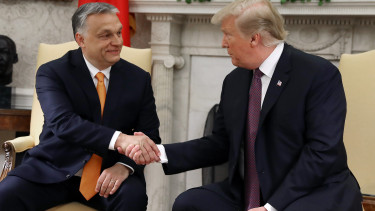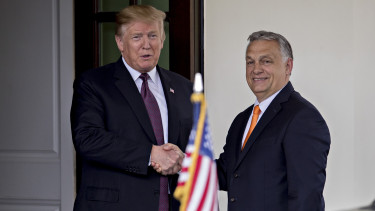Economy
Hungary competitiveness dilemma solved in one fell swoop
By Gergely Csiki
We have been hearing it for weeks that Prime Minister Viktor Orbán’s government will now really make an effort to achieve a turnaround in competitiveness, a good ole’ 180-degree spin that will make the economy really pop; it’s time for the good life Austrian-style, let’s make people happy. In this endeavour the cabinet has made allies too, putting seven experts on the National Competitiveness Council to assist Economy Minister Mihály Varga.
The goal to improve the country’s competitiveness is taken so seriously that the Council has hardly been established it has already come up with recommendations, much-needed fine-tuning measures at that.
The thing is that no matter how fancy we pimp out Hungary’s competitiveness if the cabinet keeps acting as a drug addict that cannot rid of the monkey on its back, namely the systematic demolition of investor confidence.
Let’s see just a few examples from the last few days and weeks of what we mean:
We have been hearing it for weeks that Prime Minister Viktor Orbán’s government will now really make an effort to achieve a turnaround in competitiveness, a good ole’ 180-degree spin that will make the economy really pop; it’s time for the good life Austrian-style, let’s make people happy. In this endeavour the cabinet has made allies too, putting seven experts on the National Competitiveness Council to assist Economy Minister Mihály Varga.
The goal to improve the country’s competitiveness is taken so seriously that the Council has hardly been established it has already come up with recommendations, much-needed fine-tuning measures at that.
The thing is that no matter how fancy we pimp out Hungary’s competitiveness if the cabinet keeps acting as a drug addict that cannot rid of the monkey on its back, namely the systematic demolition of investor confidence.
Let’s see just a few examples from the last few days and weeks of what we mean:
- The modification of the advertising tax without prior consultation with those that actually pay this levy. Economy Minister Mihály Varga submitted a bill late in March to raise the rate on the ad tax above the HUF 100 million mark (annual revenue) to 9% from 5.3% as of 1 June, with a 0% rate between 1 January and 31 May.
- Although the levy may decrease overall this year, uncertainties over the ad tax is huge which keeps media companies in the dark, making it most difficult for them to plan ahead. Fidesz party caucus chief Lajos Kósa said on 4 April that the rate of the tax would be under 9% in 2018.
- The transparency of Hungary’s tax policy leaves a lot to be desired. Varga told daily Magyar Idők on 20 March that tax hikes are absolutely out of the question, yet a week later he submitted the bill to almost double the rate of the ad tax. Last year, tax plans for 2017 had been revised three times, something was changed even in the last instant.
- Everything points in the direction that the amendment of the Higher Education Act was tailor-made just to put a crimp in the operation of Central European University (CEU) in Budapest.
- The cabinet has promised to come up by the end of this month with a package of proposals aimed at showing multinational retail companies who's boss. One of the key changes could be a mandatory staff expansion. According to plans, if a company fails to comply it would be obliged to pay - now pay heed, this is beautiful - a “supply security contribution". In case you wondered, this is a tax, a special sectoral levy to be exact. The problem is that “the cabinet of tax reductions" has erased the word ‘tax’ along with the words ‘tax hike’ from its communication for good. In this case, supply security means that the proceeds from this levy would be placed in a fund from which the cabinet would support “companies in a disadvantageous market position". In other words, if you do not support the idea of kicking multinational retailers in the balls with a foot wearing a boot with ‘Special Tax’ written on its side, then you obviously are an enemy of Hungarian-owned small and medium-sized enterprises. Policymakers just fail to realise that with the mandatory staff expansions the multinational companies will siphon off labour exactly from smaller business, i.e. it has no clue that the punitive measure designed for the ‘big bad multinationals’ will actually harm the consumers (more expensive products, worse quality). The measure would actually keep less competitive companies hooked up to a ventilator. The question is how much this is worth for us in the long term.
The above examples unequivocally attest that the government is destroying the business environment by selective and punitive legislative measures and has been sending negative messages to foreign investors.
Whereas we welcome the goals set by the Competitiveness Council in six areas, we have decided to give advice to the cabinet that is working so hard to boost the country’s competitiveness. No worries, these are free of charge, up for grabs:- Do not make it impossible for foreign companies to operate in Hungary by creating tailor-made laws and special levies.
- Do not go into all-out war with renowned foreign institutions by targeting them with legislation.
- Transparency should be a practical guidance not just a quotable theoretical notion.
- Finally, one more, and this is really a top-shelf suggestion: politicians should really try harder to make an assessment of the economic impact of any given measure before making a decision to implement them.








